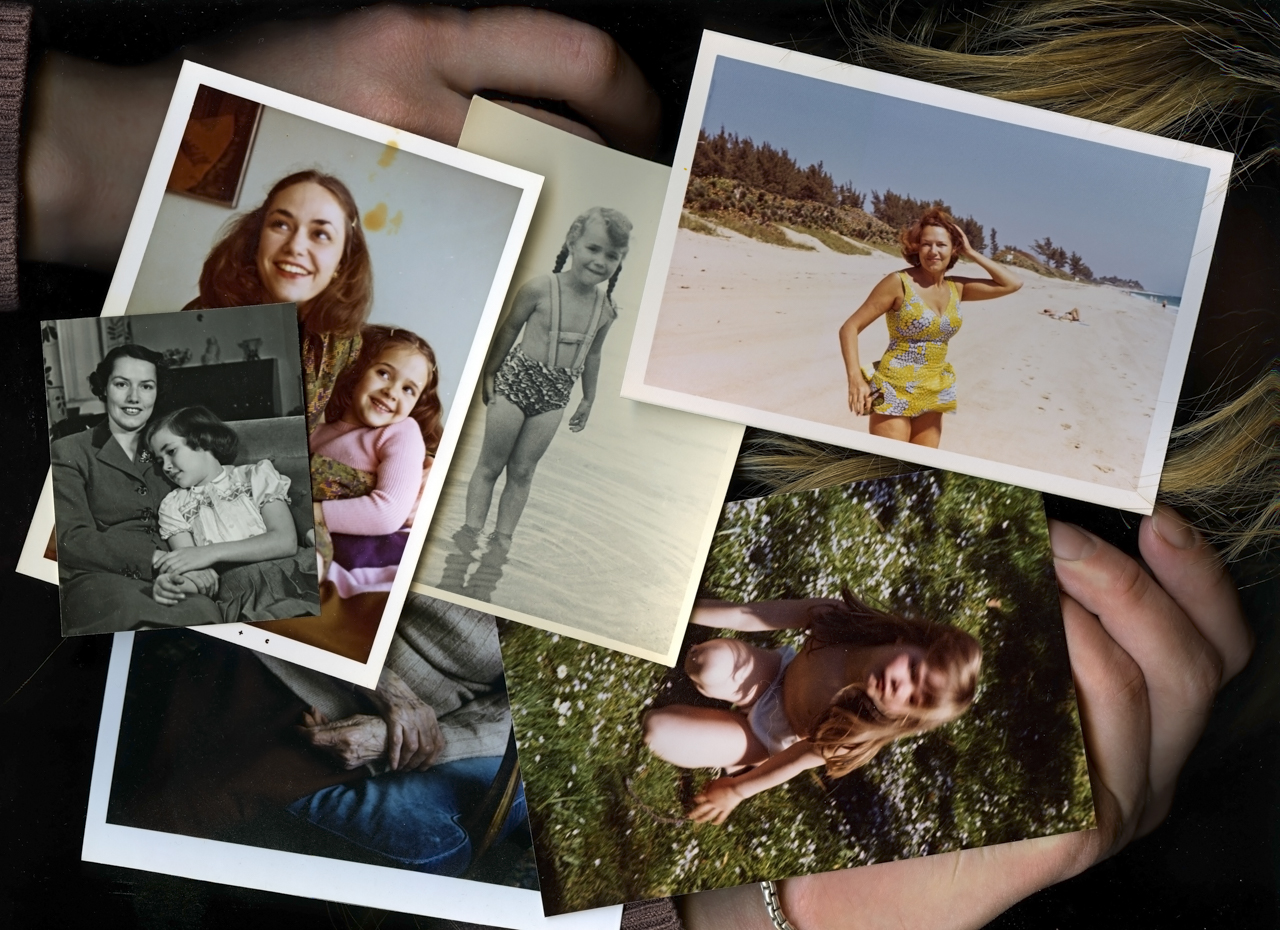

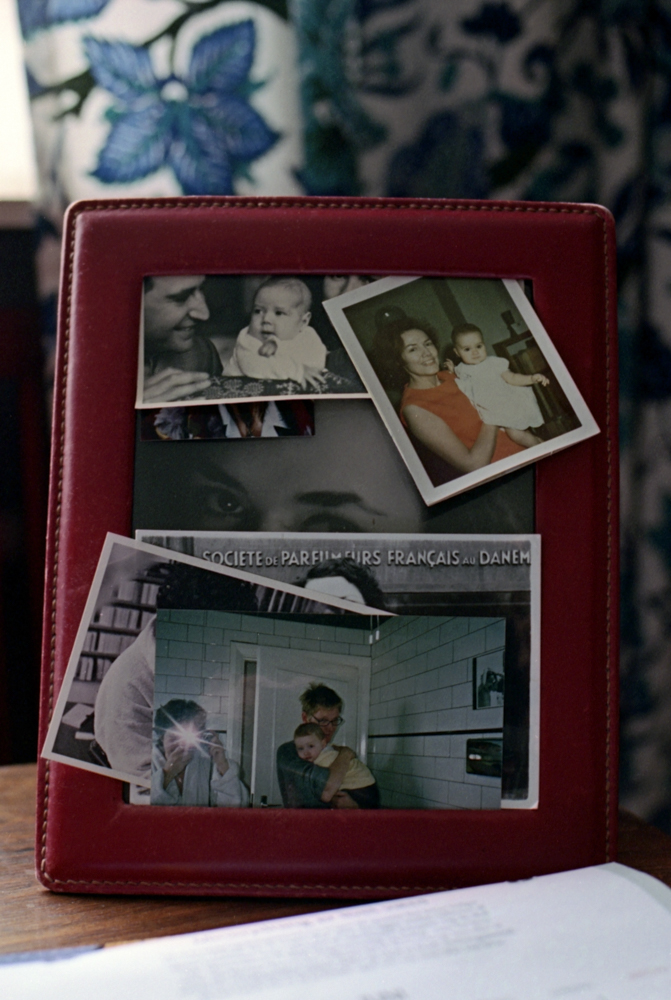
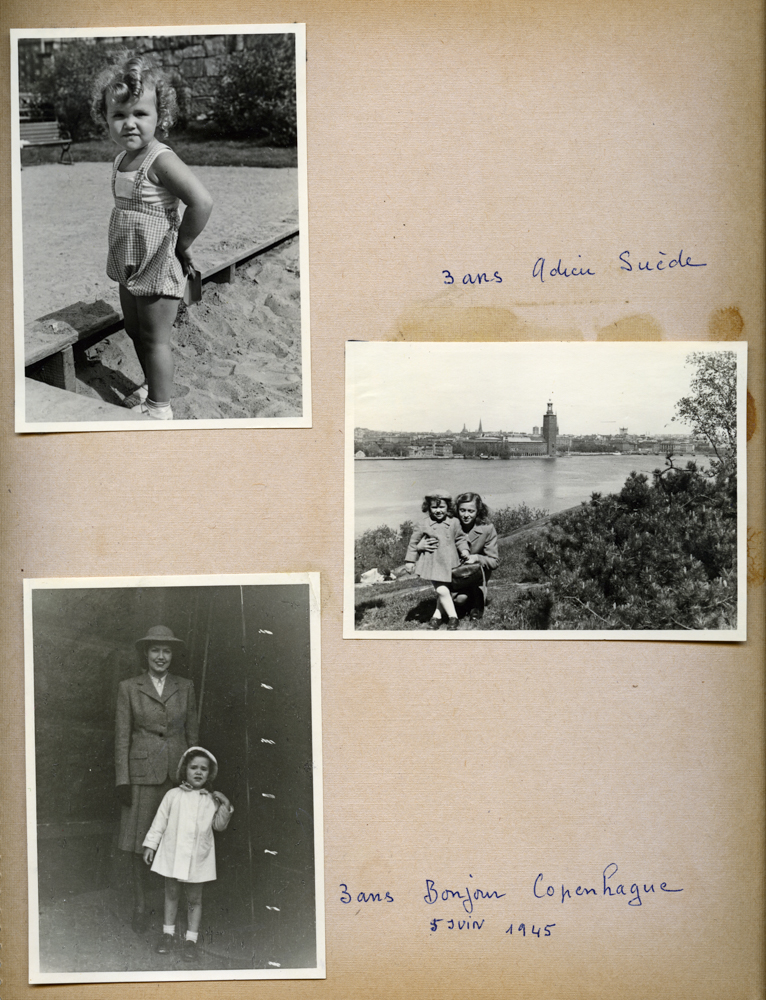
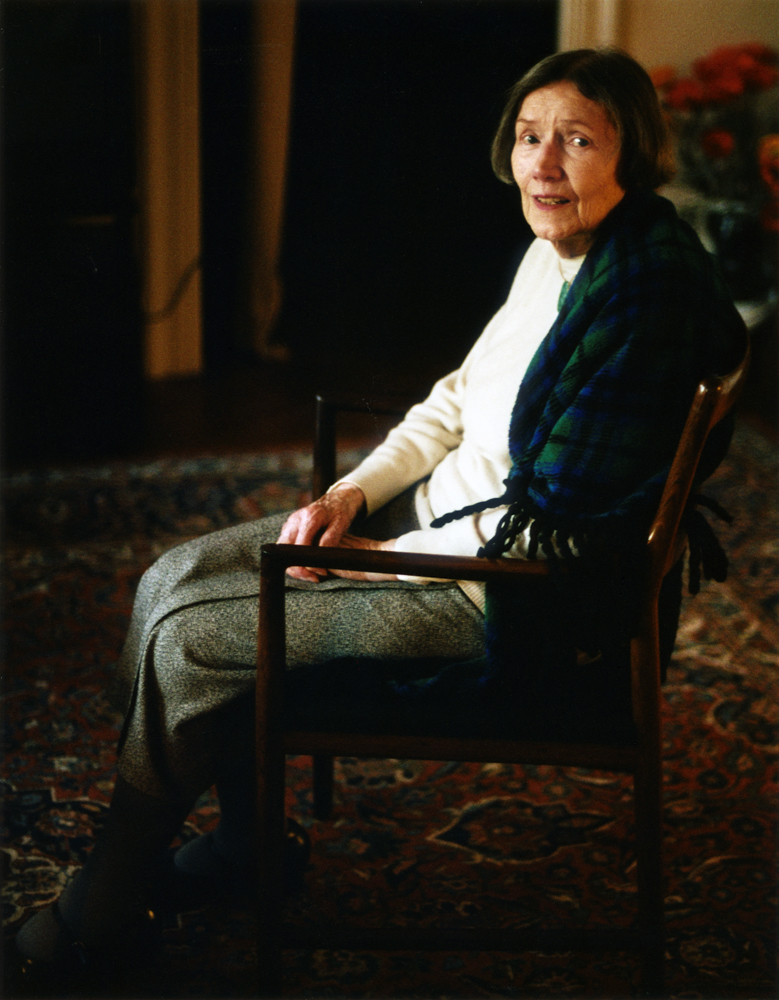
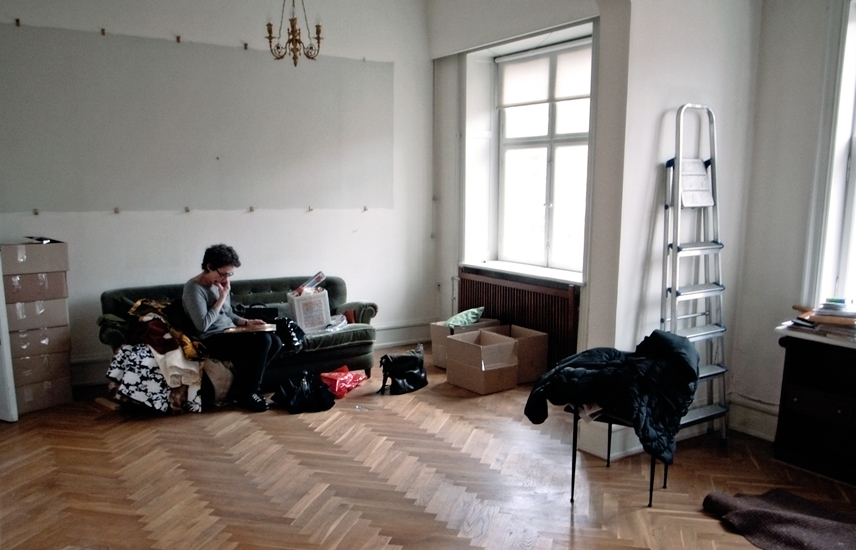
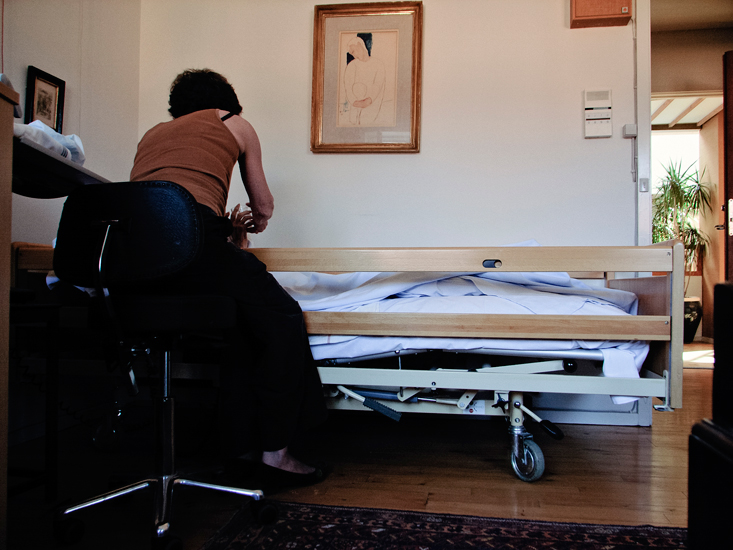
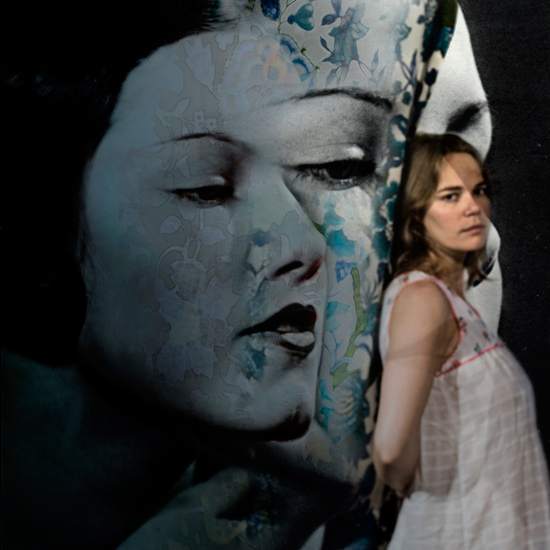
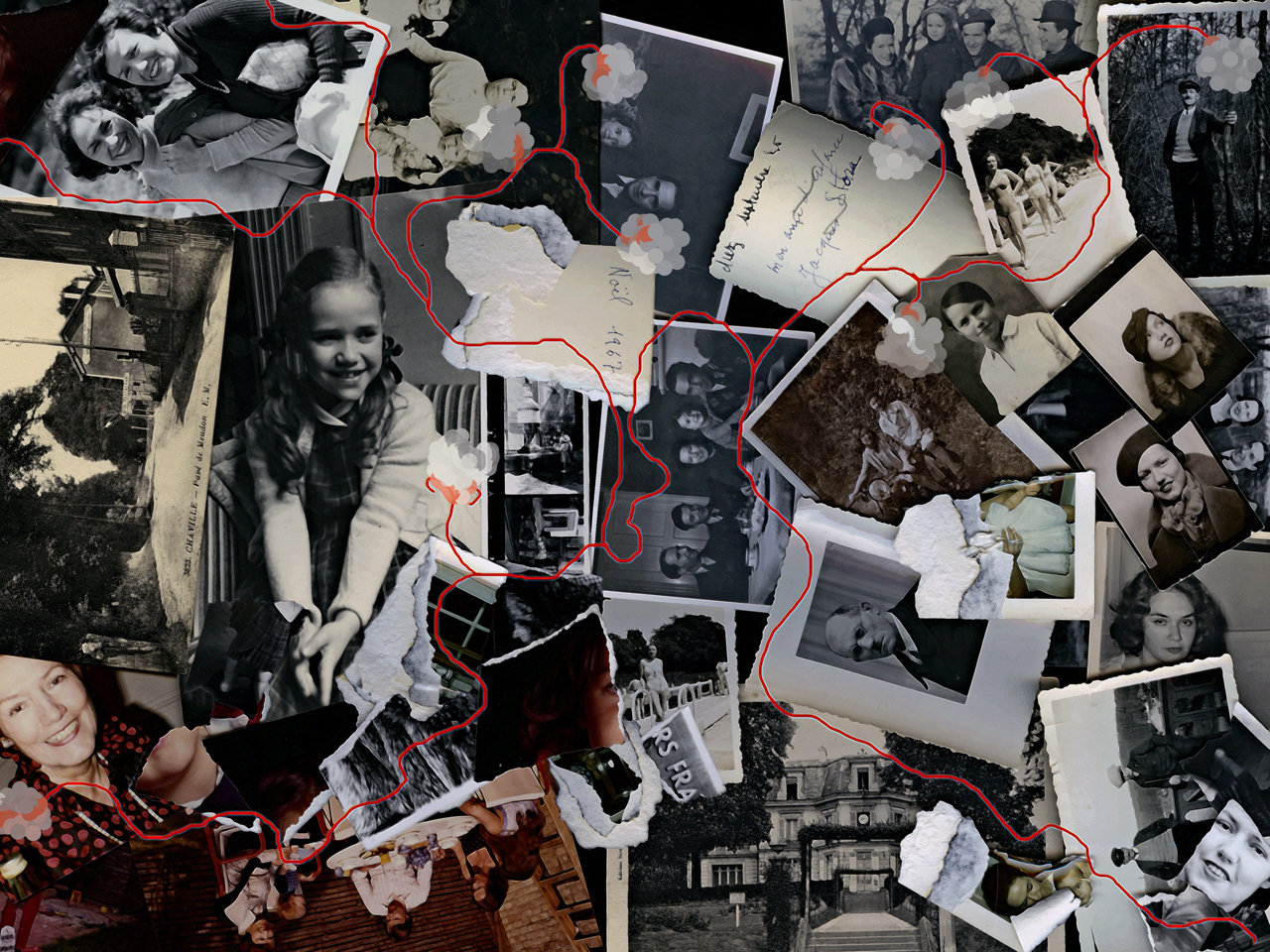
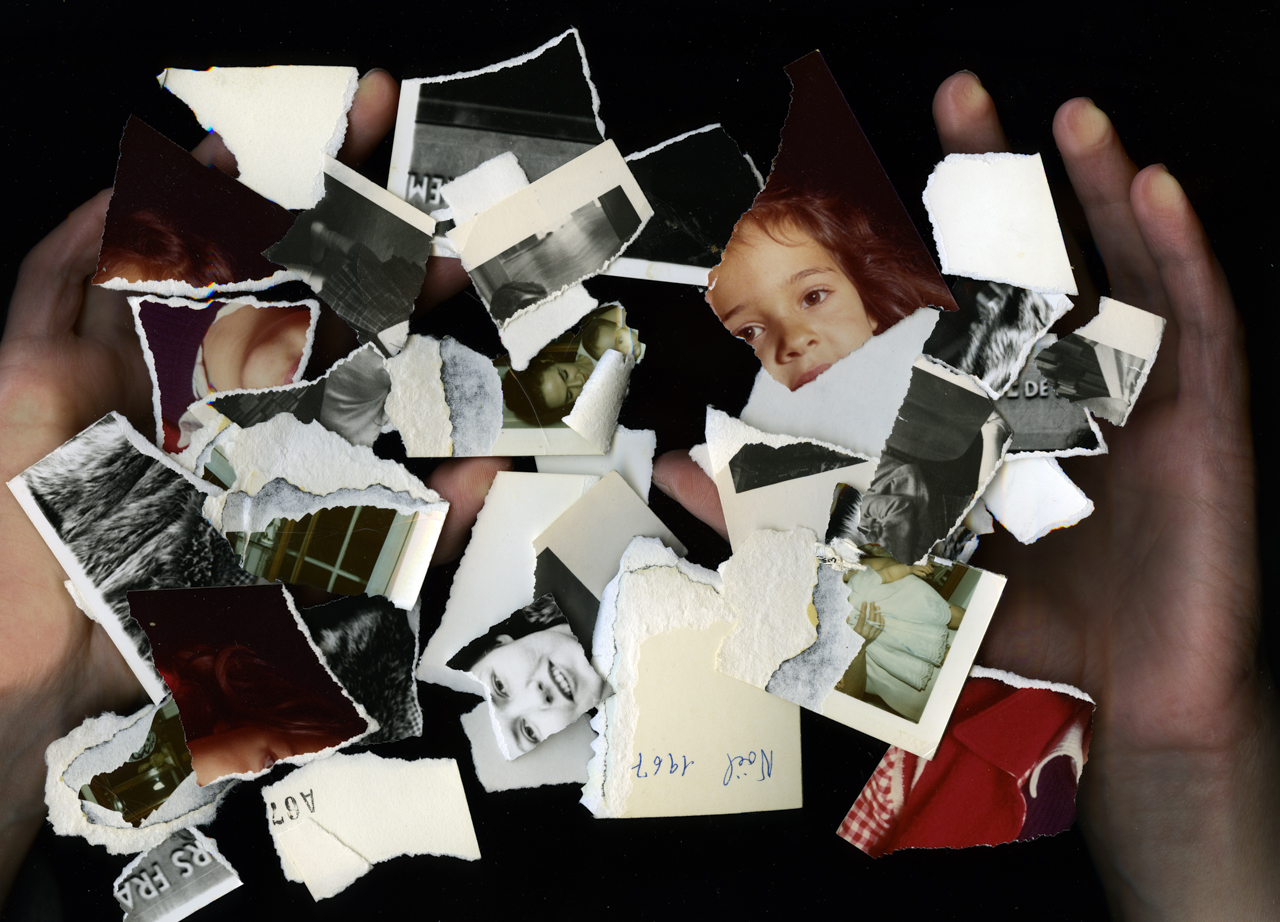
In search of Lost Time
© Alexandra Buhl
Year: 2007
Pigment print on dipond, varying sizes.
Exhibited in 2008 & 2009 as part of Responses to Conflict and Loss at University of Hertfordshire Galleries, Euston Crypt and Peterborough Museum.
Rooms once decorated and occupied; albums and torn up photos found in a nursing home bin, an indication of a life documented.
My grandmother Odette was born in the outskirts of Paris in 1914, on the day the First World War broke out. Her father was absent in the early years, since he was fighting in the war, and when Odette's mother passed away he married the widow of his brother, as was customary in those days. The family was poor, but Odette did well in school and as a young woman got herself a job in the reception of the famous Parisian hairdresser, Antoine. He cut her hair, and the result was striking enough for the artist Man Ray to want to photograph her.
In the 1930s Odette moved to Copenhagen where she met and married Natan, a Jewish businessman from Poland. In 1942 they had a daughter, Danielle. The Germans occupied Denmark in 1944, and soon after the little family fled to Sweden, where they lived till the war was over. In 1960 Odette was widowed, and she spent the second half of her life living as a wealthy, independent woman, travelling the world. I knew her as a woman who was hard to please, coloured her hair red, had her shoes custom made, and told us children strange stories about her harsh childhood.
In the final years of her life Odette suffered from Alzheimers, leaving her oblivious to who the people around her were, but still remembering the time in the 1960s when she bought the fabric that decorated her room at the nursing home; curtains, pillows and bed cover.
One day my mother found a waste basket full of torn up photographs in Odettes room. Some of the photos dated back to the 1940s, while others were from more recent years. Most of them were portraits of family members. I found it rather shocking that they had all been torn up like so. To me it seemed that Odette must have felt resentful towards all these faces staring at her from the old photos. She must have known they were related to her somehow – but she couldn't remember. The act is like the ultimate loss of meaning - loosing your history. And for me it also said something essential about the nature of photography, and their grounding in our understanding of reality. Something which I have since kept examining in my work.
Odette died July 2006, on my 30th birthday.
